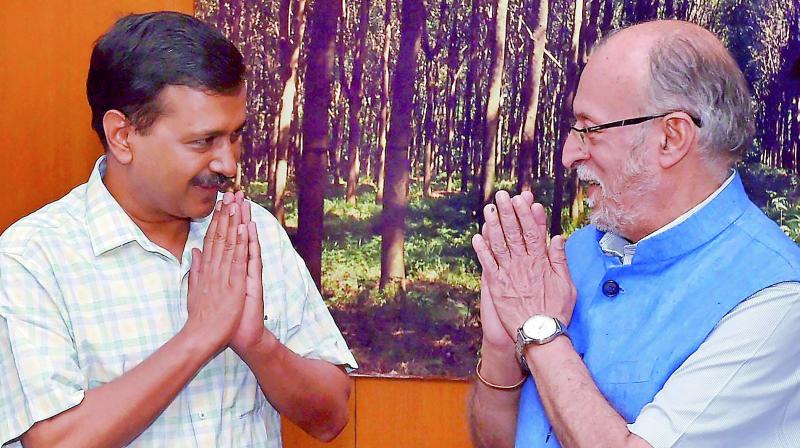AAP vs Centre: L-G has no independent power, says Supreme Court
Justices D.Y. Chandra-chud and Ashok Bhushan gave different but concurrent judgements with additional reasons.

New Delhi: In a landmark judgement, the Supreme Court on Wednesday held that the Lieutenant Governor (L-G) of NCT of Delhi has no absolute or over-riding powers and he is bound by the aid and advice of the council of ministers.
A five-judge Constitution Bench headed by the Chief Justice Dipak Misra gave this 535-page ruling on a batch of petitions filed by the Kejriwal government challenging the obstructions caused by the L-G in the day-to-day administration.
The court, however, held that Delhi is a Union Territory with special status and cannot be construed as a state as a nine-judge Bench of the apex court has already made the position clear.
The CJI for himself and Justices A.K. Sikri held that the L-G has not been entrusted with any independent decisionmaking power. He has to either act on the “aid and advice” of Council of Ministers or he is bound to implement the decision taken by the President on a reference being made by him.
Justices D.Y. Chandrachud and Ashok Bhushan gave different but concurrent judgements with additional reasons.
The Constitution Bench had heard arguments on a batch of special leave petitions filed by the Delhi government against a judgement of the Delhi High Court, which held that the L-G was the administrative head of the capital and was not bound by the aid and advice of the Chief Minister or council of ministers.
The HC also held that the then L-G, Najeeb Jung was its administrative head and all decisions will have to be taken with his consent and concurrence.
Kejriwal government had complained that the L-G is acting as a stumbling block in every decision as his approval is required for implementation. The Bench said the terminology used in Articles 239AA of the Constitution and the rules make it clear that the decisions of the council of ministers must be communicated to the L-G but this does not mean that his concurrence is required.
The CJI held that the control of the Centre is confined to three areas—land, police and public order and there cannot be any attempt on the part of the Union government to seize all control.

